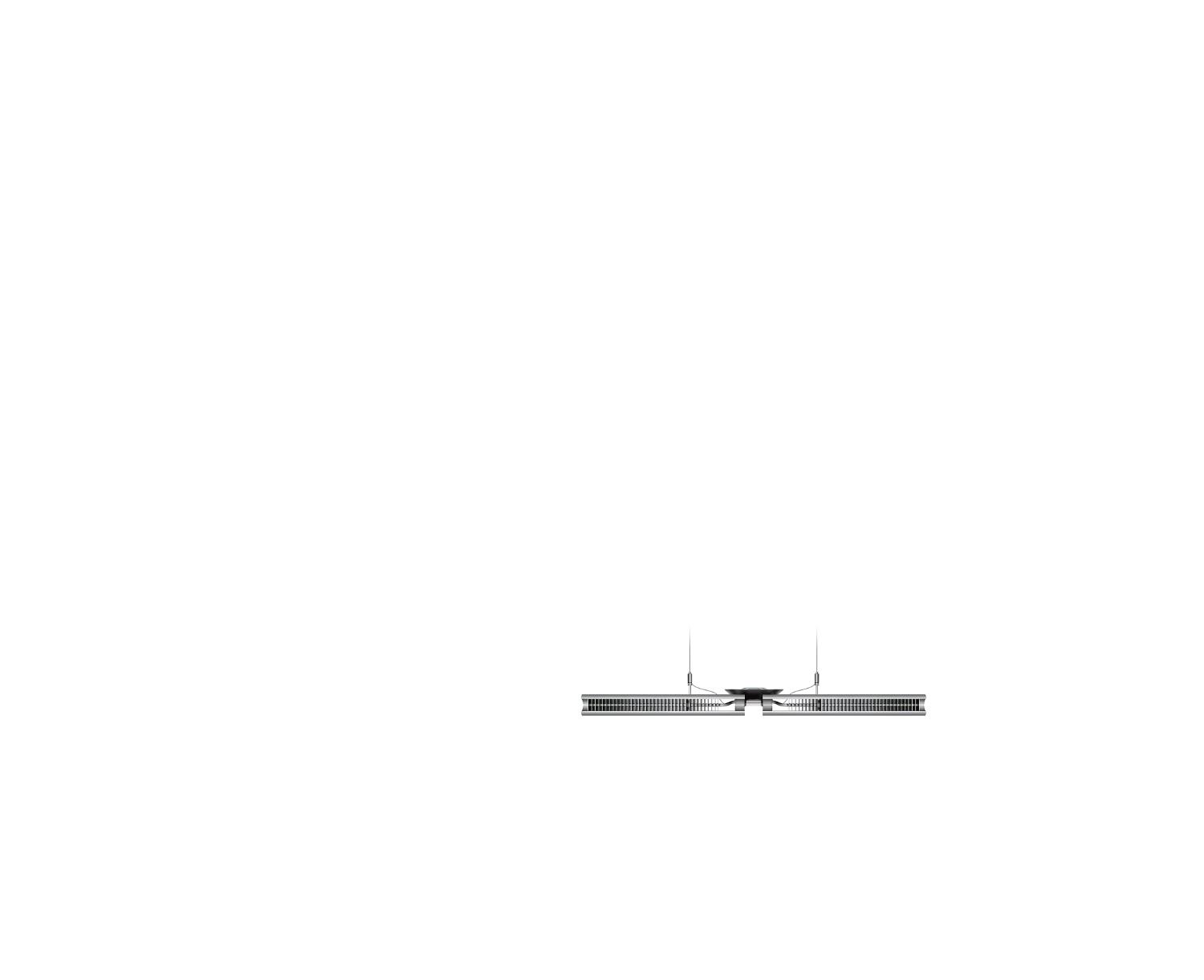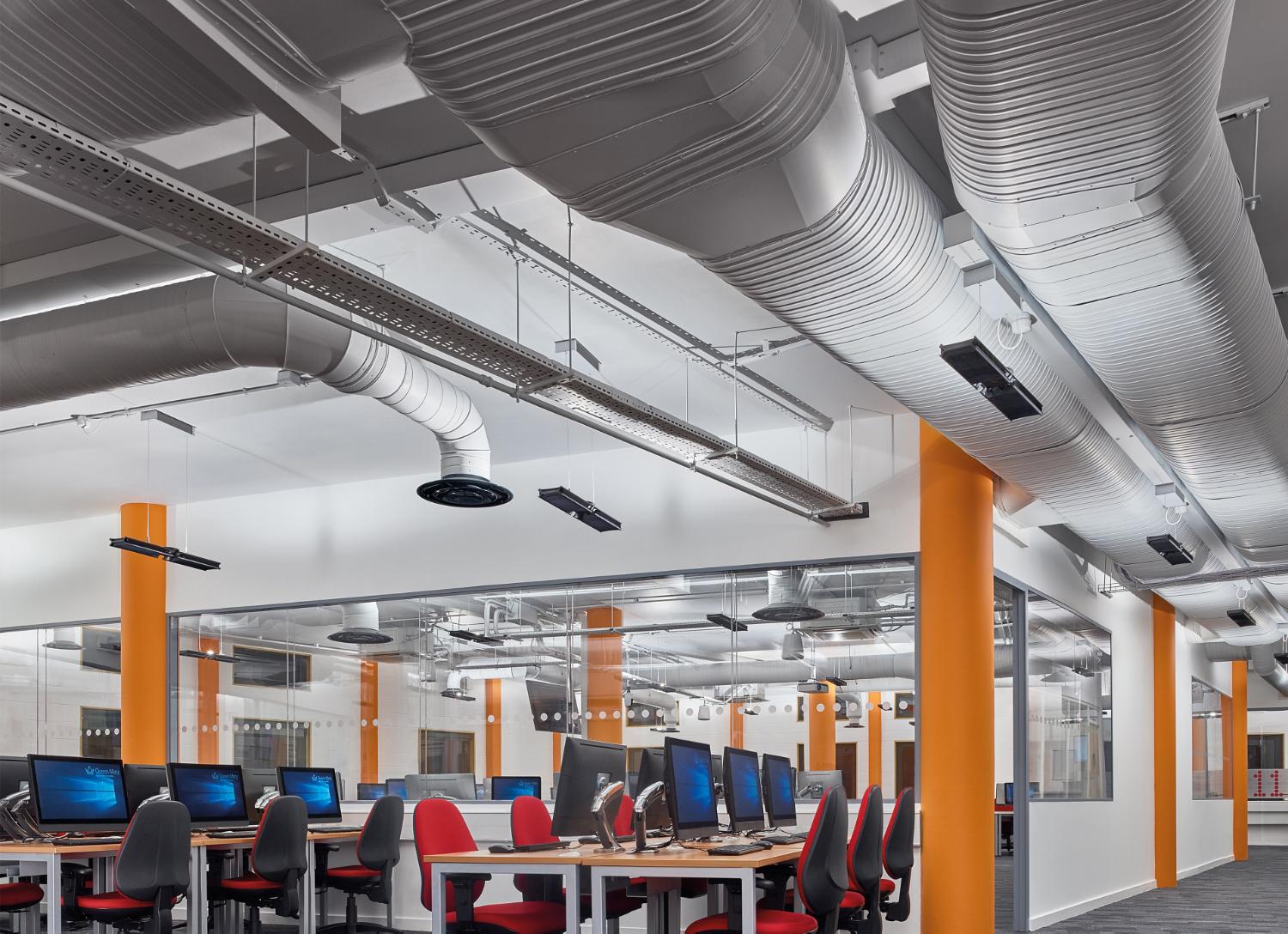
Case study
Queen Mary, University of London

The business
Queen Mary University of London is among the UK's leading research focused universities. based in the heart of London's East End, it has over 21,000 students and 4,000 staff - and seven Nobel-Prize winners among its alumni. The library is part of a £105 million investment in new facilities.

The problem
Light levels can affect students' wellbeing, their ability to concentrate and overall study experience. Creating an environment where students can thrive is paramount.
The library's existing lights needed frequent bulb replacement, creating prolonged periods of weak light. Poor lighting - either too bright or too dim - can cause eyestrain and headaches, affecting study performance.
The solution: Cu-Beam Up light
"The old lights didn't support our carbon reduction target. Now we're noticeably reducing the energy consumption, despite the building being open longer," says Dixon.
-
Powerful lighting
Cu-Beam Up lights use a custom-engineered bubble optic lens for an ultra-wide distribution of powerful light. This can eliminate weak spots, ideal for study environments where ambient lighting is often complimented by desk lamps. As Julien Dixon says: "The quality of the light means that our students' productivity can improve as their eyes feel less strained."
-
Efficient illumination and long-lasting brightness
Cu-Beam Up lights work with a single power-efficient LED. Heat pipe technology draws heat away, maintaining brightness for up to 180,000 hours.¹


Cu-Beam Up light
Cooled by Heat pipe technology, a single high-power LED projects a wide pool of even, ambient light. Fully adjustable to fulfil any task, Cu-Beam Up light can maintain LED brightness for up to 180,000 hours.¹
Explore the Dyson for business range
¹Calculated lifetime based on LED L70.
⁺High-power LEDs use a fraction of the energy of some conventional halogen lights.


/b2b-overview/B2B-Explore-Dyson_Range.jpg?$responsive$)
